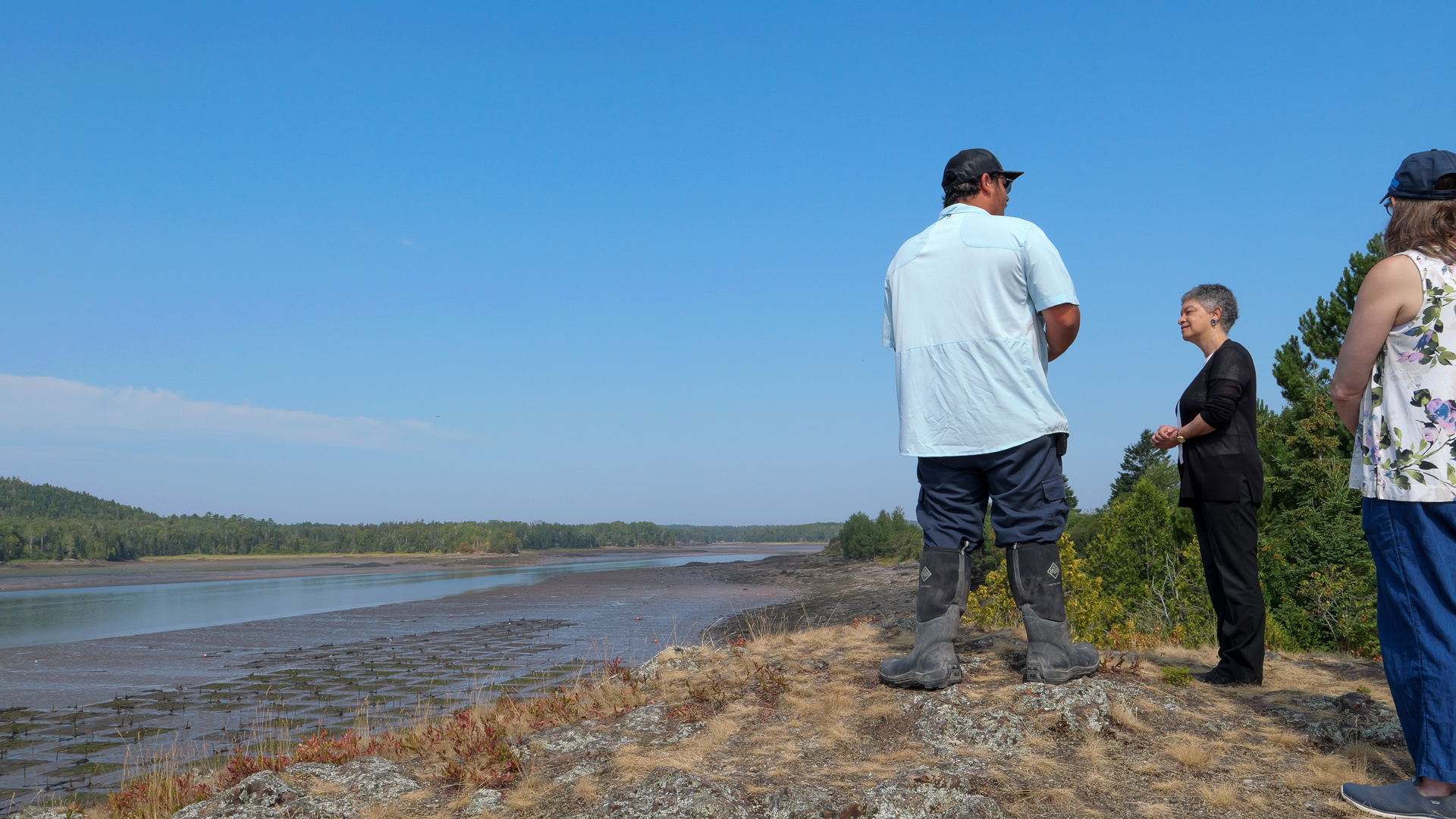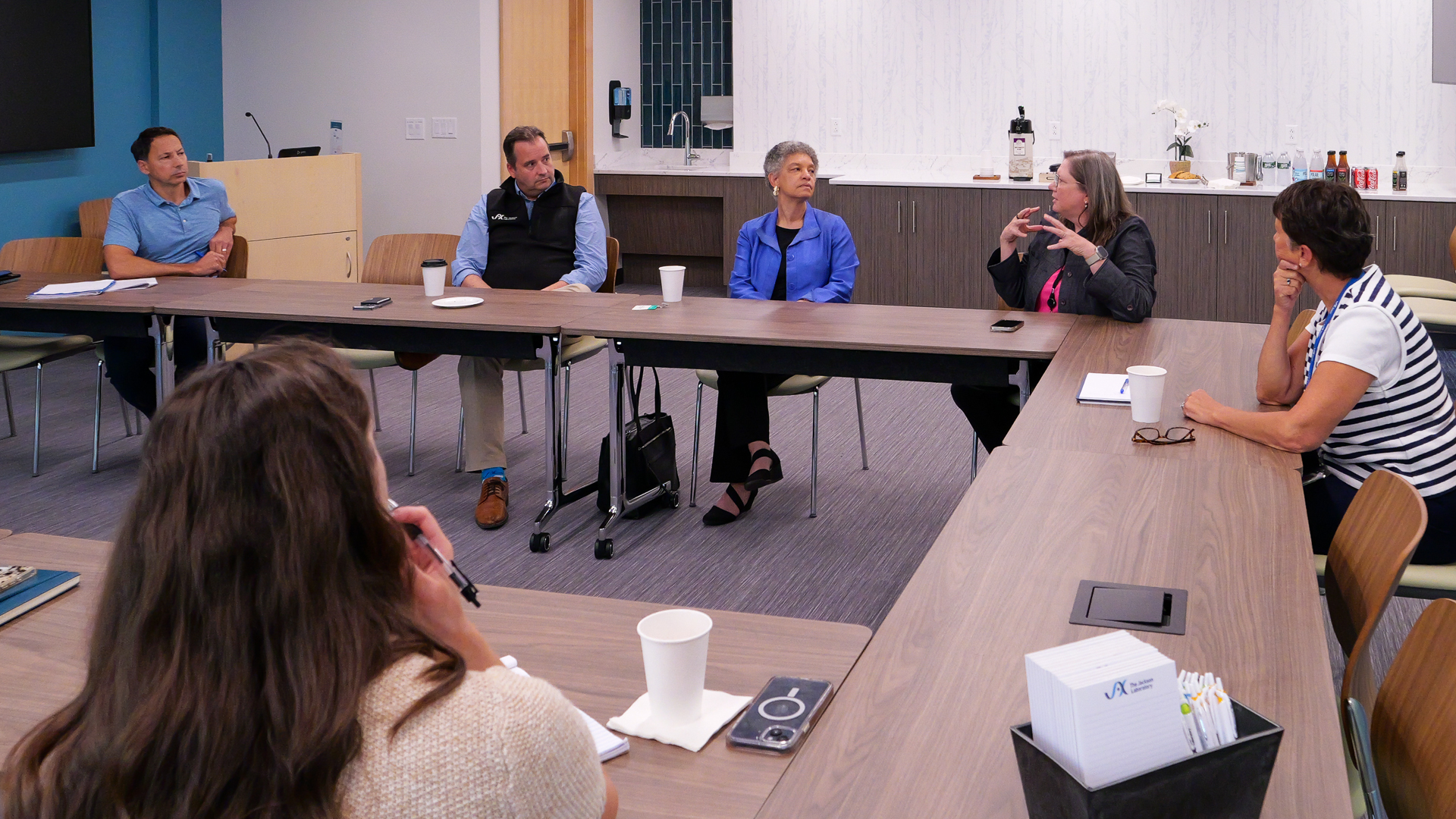Boston Fed president travels Maine coast to hear about economic concerns, innovations 
Visit covers issues from child care access to startup assistance 
Boston Fed President Susan M. Collins travelled the Maine coast from Washington County to Portland last week and heard from residents concerned about issues ranging from child care, to health care, to inflation.
On Wednesday, Collins was in the Washington County communities of Perry and Calais, both of which sit on the Canadian border. There she spoke with Passamaquoddy tribal leaders and other community members about their work to expand employment and educational opportunities.
The trip ended Thursday about 230 miles south in Portland, where Collins learned about an entrepreneurship-focused tech hub led by Northeastern University.
Collins also travelled to Bar Harbor, to hear how scientists are using new technology to improve health care for rural patients.
Residents: Flexible child care is critical for improving job opportunities
In Pleasant Point, Passamaquoddy leaders gave Collins a tour of the Sipayik Community Clam Garden, which is a project focused on revitalizing clam populations in tribal territory in Passamaquoddy Bay.
She later headed to Calais for a discussion about local economic conditions with the tribal leaders and members of the Washington County Working Communities Challenge team. The challenge is part of the Boston Fed’s Working Places community development initiative and focuses on building strong local economies and communities in New England’s rural areas.
Team members said they were working to promote local education and employment, and they emphasized that improved access to child care was an acute need. They said many residents work in health care, fishing, and at a local paper mill and have unconventional hours, so they need flexible child care options.
4 images

Susan Mingo, president of Washington County Community College, said that the lack of reliable child care also means parents can’t finish their degrees, and that has huge workforce impacts: Some of the county’s lowest labor force participation rates and highest poverty rates in the county are among single mothers.
“It’s about those external barriers to success that, unfortunately, get in the way of their (degree) completion,” she said.
Matt Dana, a tribal member who leads the Working Communities Challenge team, said families, child care providers, and state and tribal agencies recently gathered for a “child care vision day” to discuss challenges and solutions. He said the team is working to create a local service hub, where people can find child care resources and more.
Elsie Flemings, executive director of Healthy Acadia, said housing costs are also a major issue. She said that, in inflation-adjusted dollars, the purchase price for a home in Washington County has increased 126% over the past decade, but the median household income has only gone up 6%.
“We really see a need for everyone coming together,” she said.
Local business owners in Calais spoke with Collins about labor force challenges, including finding qualified candidates to fill open positions. They said labor force shortages worsened after the COVID-19 pandemic, which led many residents to retire early – particularly those in health care. At the same time, incomes generally are not keeping up with inflation, they said.
“People are definitely pulling back on their purse strings,” said Ian Pratt, who owns a car dealership in Calais. “Some people are working really, really, hard and they can't get ahead.”
Tech innovation helps improve health care and entrepreneurship
Collins visited The Jackson Laboratory, a biomedical research organization based in Bar Harbor on the first day of the trip, Aug. 12. There, employees told her how they’re using new technologies to expand health care access in rural communities.
3 images

Mary Dickinson, Ph.D., the nonprofit’s chief scientific officer, said the team works to provide physicians in rural hospitals with “cutting-edge” diagnostics tools. For example, the lab’s Maine Cancer Geonomics Initiative helps connect doctors with a virtual network of cancer experts across the world. Those experts can then help the doctor analyze the genomics results of a biopsy and decide on the best treatments.
“Every cancer clinic in Maine participates (in this program), and it makes a 30% improvement in the outcomes of patient participants,” she said. “That is a giant outcome number for cancer.”
Tech innovation was also in focus during Collins’ visit to Northeastern University’s Roux Institute in Portland on Thursday.
Chris Mallett, the institute’s chief administrative officer, told Collins the group has helped guide 130 startups, which have the potential to serve as job-creating companies in Maine. He said the institute hopes to “catalyze” Maine’s economy by educating people in high-tech fields, like AI, and life sciences.
Warren Adams, who focuses on climate-related tech at the institute, said collaboration between students is critical.
“They all share similar struggles in building a business: How do you hire people? How do you get your first customers,” he said. “(At the institute), they can help each other in that journey.”
Media Inquiries? 
Contact our media relations team. We connect journalists with Boston Fed economists, researchers, and leadership and a variety of other resources.

 About the Authors
About the Authors
Amanda Blanco is a member of the communications team at the Federal Reserve Bank of Boston.
Email: Amanda.Blanco@bos.frb.org
Site Topics
Keywords
- Maine ,
- Susan M Collins ,
- Working Communities Challenge ,
- workforce development ,
- child care






